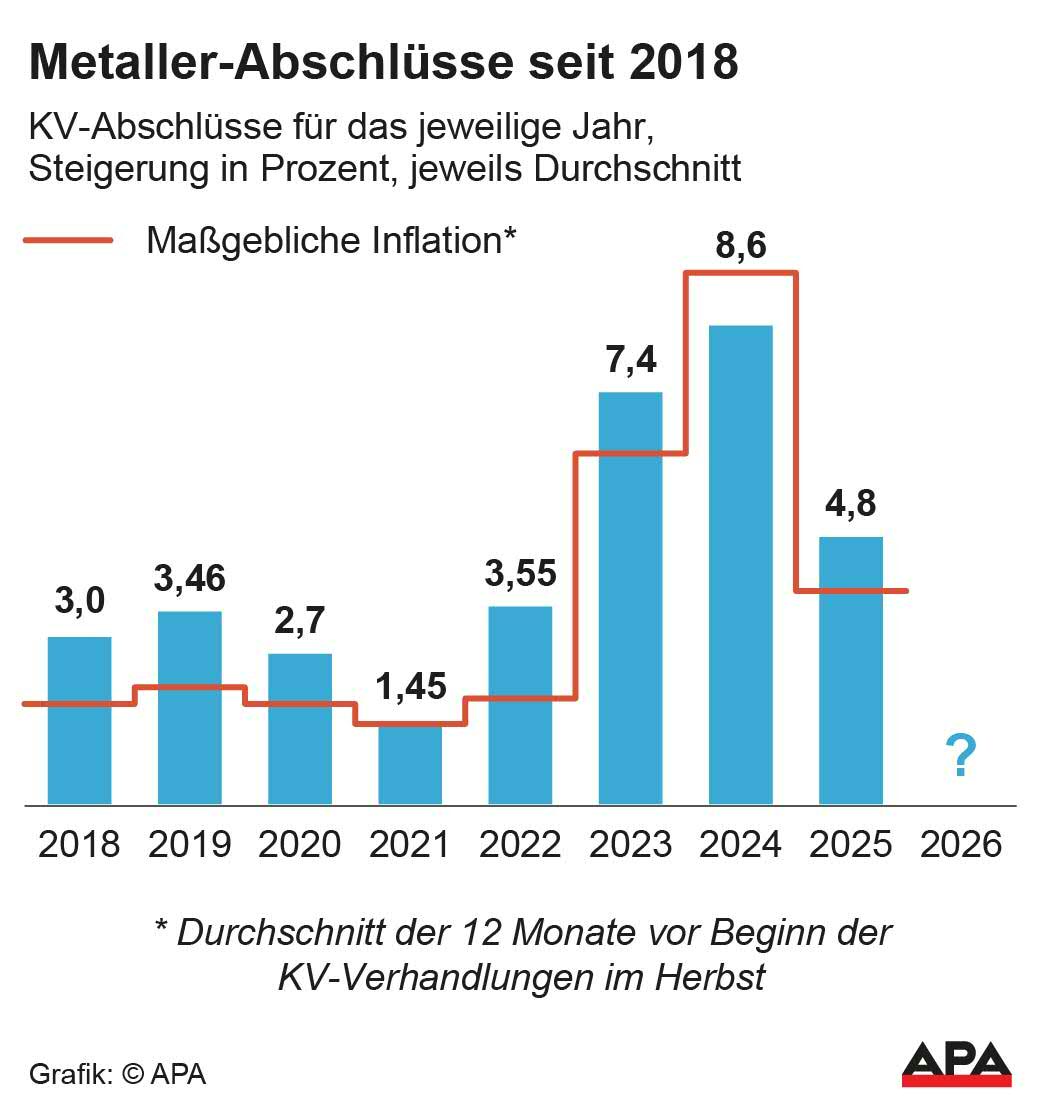Employers Want Cautious Agreements in Metalworkers' Collective Bargaining Negotiations

"We need to conclude in such a way for many years that we recover what we have lost in the last three to five years," said Knill. At a press event in Vienna, Knill refused to name a percentage for the employer negotiations. However, he hinted that the ECB's inflation target of two percent could serve as a guideline. This value would undercut the current rolling inflation in Austria, which stands at 2.8 percent, by 0.8 percentage points.
Two-Year Agreement Would Be Welcome in Metalworkers' Collective Bargaining Negotiations
In light of volatile times, employers in the metal sector could also envision a two-year agreement, said Knill. The planning security thanks to a longer agreement is significant. The talks should succeed from the employer negotiator's perspective despite the difficult starting position, because all social partners - including the union - must be aware of the precarious situation. Even two years ago, innovative solutions brought everyone together. Such innovative solutions are needed again this year.

Employers Complain About High Labor Costs
The Metal Technology Industry (FMTI in the Chamber of Commerce) with its approximately 130,000 jobs is under an "unprecedented stress test," said Knill. The production value has dropped by about 22 percent since 2023 (including the forecast for 2025). This is also due to wage agreements that have recently been consistently higher in Austria than in other countries. As a result, unit labor costs have become too high, and competitiveness is suffering. About 10,000 jobs have been lost during this period. A real trend reversal is not visible, currently only a stabilization at a very weak to recessionary level. "Demand is not recovering, the zero line is the top line," said Knill.
Employers Also Demand Savings on Pensions
The employer representative also demanded more savings efforts from the state. He appreciated the government's attempt to phase in changes for pensions and civil servants. At the same time, Knill condemned fee increases by municipalities, states, and the federal government. This cannot be the case in the current situation. Bureaucracy continues to burden companies heavily. When asked whether minimal agreements and simultaneous pension increases below inflation send a fatal signal to the much-vaunted, also employed, performance carriers in Austria, Knill did not want to comment specifically. He repeatedly emphasized generally that it requires an effort from everyone in Austria to steer the country back into positive paths. Pensions are only a "small step," more can be done there.
Union Rejects FMTI's Call for Restraint
The current demand from the Metal Technology Industry Association (FMTI) for "absolute restraint in wage increases" was rejected by the responsible unions PRO-GE and GPA. "Zero wage rounds are not a means to combat inflation. On the contrary, they would only endanger economic recovery and the financing of the pension or health system. Therefore, the unions will not negotiate zero wage rounds in the collective bargaining talks," said the union chief negotiators Reinhold Binder (PRO-GE) and Mario Ferrari (GPA).
(APA/Red)
This article has been automatically translated, read the original article here.





